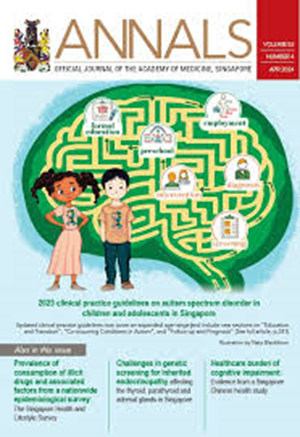COVID-19对儿童心血管的影响
IF 5.2
4区 医学
Q2 Medicine
引用次数: 1
摘要
虽然严重急性呼吸衰竭是严重急性呼吸综合征冠状病毒2 (SARS-CoV-2)感染的发病和死亡的主要原因,但这种病毒感染在某些个体中可导致心血管疾病。该病毒对心脏的影响包括心肌炎、心包炎、心律失常、冠状动脉瘤和心肌病,并可导致心源性休克和多系统器官衰竭。方法:本文综述了SARS-CoV-2在儿科人群中的心脏表现。我们对与2019年急性冠状病毒病(COVID-19)感染、儿童多系统炎症综合征(MIS-C)和mRNA COVID-19疫苗相关的心血管疾病进行了范围综述。还审查了儿童运动员在感染COVID-19后重返赛场的特殊考虑。结果:急性COVID-19患儿应进行心功能障碍筛查,并了解病史。在出现心律失常、低心输出量和/或心肌炎的任何体征/症状后,应考虑进一步的心血管评估。收治的重症急性COVID-19患者应进行持续心脏监测。根据临床需要,实验室检测包括肌钙蛋白和b型利钠肽或n端前脑利钠肽检测。超声心动图与应变评估和/或心脏磁共振成像应考虑评估舒张和收缩功能障碍,冠状动脉解剖,心包和心肌。对于misc患者,静脉注射免疫球蛋白和糖皮质激素联合治疗是安全的,并且有可能改变疾病。misc的治疗目标是超免疫反应。在某些情况下需要支持性护理,包括机械支持。结论:心血管疾病是SARS-CoV-2感染的显著特征。大多数患有COVID-19心脏病的婴儿、儿童和青少年完全康复,没有持久的心功能障碍。然而,需要长期的研究和进一步的研究来评估SARS-CoV-2变异的心血管风险,并了解COVID-19心功能障碍的病理生理学。本文章由计算机程序翻译,如有差异,请以英文原文为准。
Cardiovascular effects of COVID-19 in children
Introduction: Although severe acute respiratory failure is the primary cause of morbidity and mortality in severe acute respiratory syndrome coronavirus 2 (SARS-CoV-2) infection, this viral infection leads to cardiovascular disease in some individuals. Cardiac effects of the virus include myocarditis, pericarditis, arrhythmias, coronary aneurysms and cardiomyopathy, and can result in cardiogenic shock and multisystem organ failure. Method: This review summarises cardiac manifestations of SARS-CoV-2 in the paediatric population. We performed a scoping review of cardiovascular disease associated with acute coronavirus disease 2019 (COVID-19) infection, multisystem inflammatory syndrome in children (MIS-C), and mRNA COVID-19 vaccines. Also examined are special considerations for paediatric athletes and return to play following COVID-19 infection. Results: Children presenting with acute COVID-19 should be screened for cardiac dysfunction and a thorough history should be obtained. Further cardiovascular evaluation should be considered following any signs/symptoms of arrhythmias, low cardiac output, and/or myopericarditis. Patients admitted with severe acute COVID-19 should be monitored with continuous cardiac monitoring. Laboratory testing, as clinically indicated, includes tests for troponin and B-type natriuretic peptide or N-terminal pro-brain natriuretic peptide. Echocardiography with strain evaluation and/or cardiac magnetic resonance imaging should be considered to evaluate diastolic and systolic dysfunction, coronary anatomy, the pericardium and the myocardium. For patients with MIS-C, combination therapy with intravenous immunoglobulin and glucocorticoid therapy is safe and potentially disease altering. Treatment of MIS-C targets the hyperimmune response. Supportive care, including mechanical support, is needed in some cases. Conclusion: Cardiovascular disease is a striking feature of SARS-CoV-2 infection. Most infants, children and adolescents with COVID-19 cardiac disease fully recover with no lasting cardiac dysfunction. However, long-term studies and further research are needed to assess cardiovascular risk with variants of SARS-CoV-2 and to understand the pathophysiology of cardiac dysfunction with COVID-19.
求助全文
通过发布文献求助,成功后即可免费获取论文全文。
去求助
来源期刊

Annals Academy of Medicine Singapore
医学-医学:内科
CiteScore
4.90
自引率
5.80%
发文量
186
审稿时长
6-12 weeks
期刊介绍:
The Annals is the official journal of the Academy of Medicine, Singapore. Established in 1972, Annals is the leading medical journal in Singapore which aims to publish novel findings from clinical research as well as medical practices that can benefit the medical community.
 求助内容:
求助内容: 应助结果提醒方式:
应助结果提醒方式:


